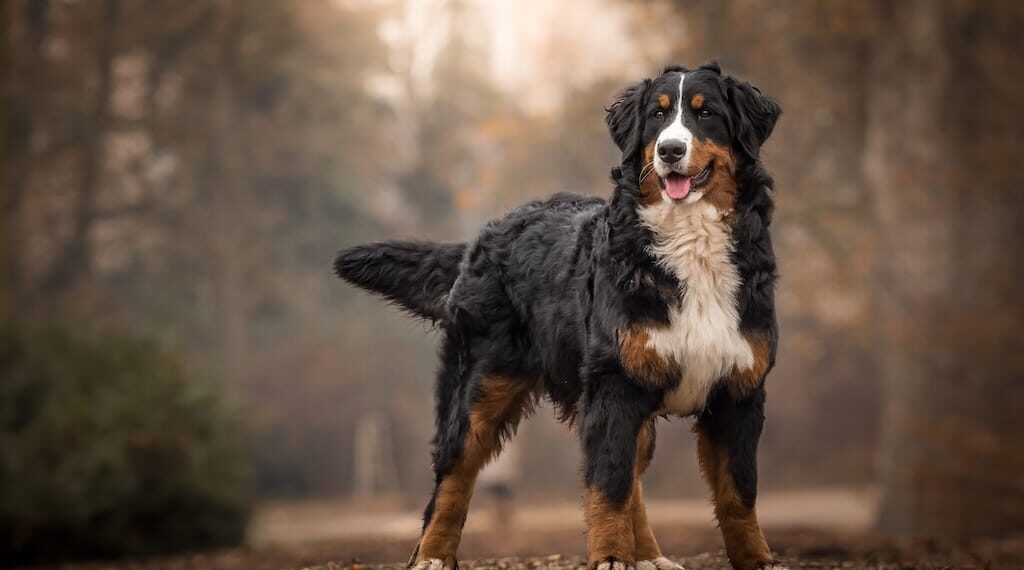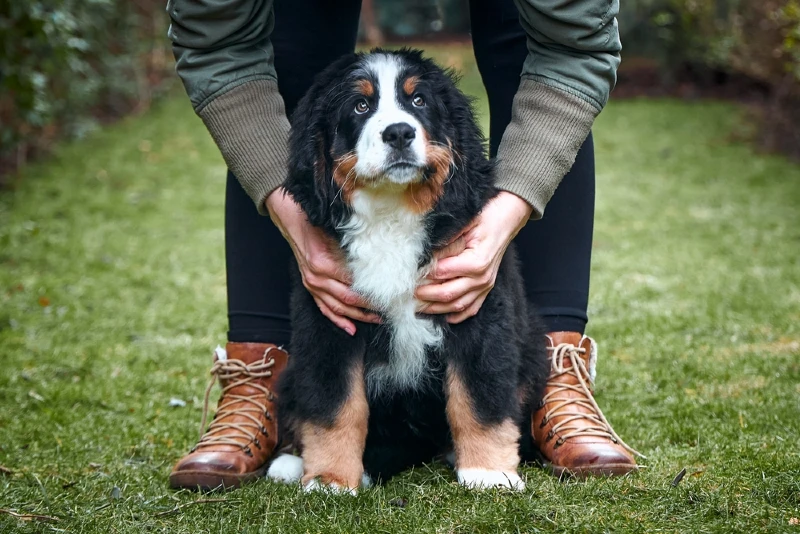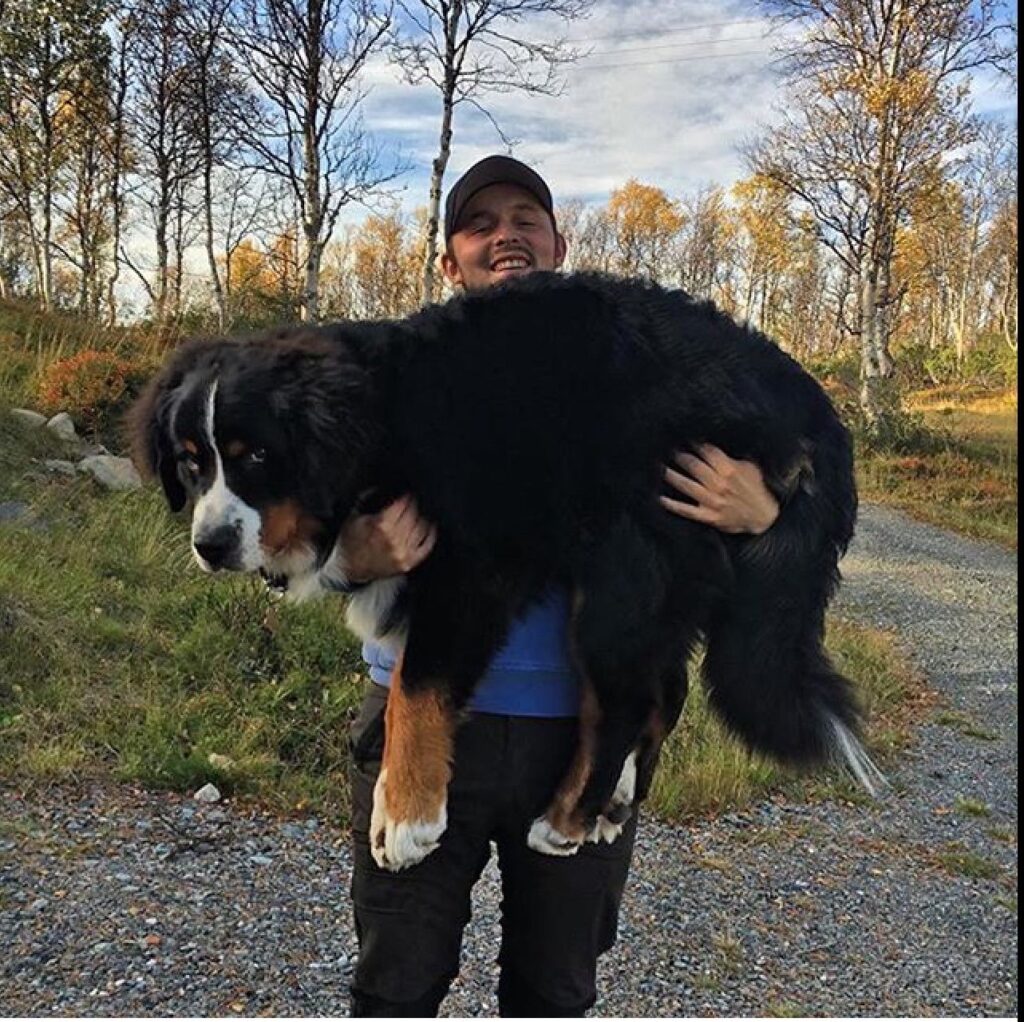“Until one has loved an animal, a part of one’s soul remains unawakened.” — Anatole France
The Bernese Mountain Dog, often referred to as the “gentle giant” of the canine world, embodies a blend of strength, beauty, and a heartwarming disposition. This majestic breed, with its striking tricolor coat and imposing stature, has captivated dog enthusiasts globally. According to the American Kennel Club, the Bernese Mountain Dog ranks consistently among the top 30 most popular dog breeds in the United States, a testament to its endearing qualities and multifaceted capabilities.
The Origin and History of the Bernese Mountain Dog
Hailing from the Swiss Alps, the Bernese Mountain Dog, or “Berner,” was originally bred as a farm dog, excelling in tasks such as herding cattle, pulling carts, and acting as a loyal watchdog. This breed’s lineage can be traced back over 2,000 years, believed to have descended from Roman mastiffs brought to Switzerland. The Bernese Mountain Dog’s adaptability to harsh alpine climates, combined with its gentle temperament, made it an invaluable asset to Swiss farmers.
Physical Characteristics and Temperament
A Striking Appearance
The Bernese Mountain Dog is easily recognizable by its distinctive tricolor coat, consisting of jet-black, rust, and white markings. Adult males typically weigh between 80 to 115 pounds, while females range from 70 to 95 pounds. Their double coat, featuring a long outer layer and a woolly undercoat, not only adds to their regal appearance but also provides insulation against cold weather.

Gentle and Affectionate Nature
Despite their formidable size, Berners are known for their gentle and affectionate temperament. They are incredibly loyal and form strong bonds with their families, often displaying a calm and patient demeanor, especially around children. Their intelligence and eagerness to please make them highly trainable, though they require consistent, positive reinforcement methods.
Health and Lifespan Considerations
While the Bernese Mountain Dog is a robust and hardy breed, it is prone to certain health issues, most notably hip dysplasia, elbow dysplasia, and various types of cancer. Regular veterinary check-ups, a balanced diet, and appropriate exercise are crucial to maintaining their health. Unfortunately, the breed’s lifespan is relatively short, averaging between 7 to 10 years.

Common Health Concerns
- Hip and Elbow Dysplasia: These hereditary conditions can lead to arthritis and mobility issues. Regular screening and maintaining a healthy weight can mitigate the severity.
- Cancer: Bernese Mountain Dogs have a higher incidence of cancers such as histiocytic sarcoma and lymphoma compared to other breeds.
- Bloat: This life-threatening condition requires immediate veterinary attention. Feeding smaller, frequent meals and avoiding vigorous exercise after eating can help reduce the risk.
Training and Socialization
Given their size and strength, early training and socialization are essential for Bernese Mountain Dogs. Enrolling them in puppy training classes can help instill good manners and prevent potential behavioral issues. They excel in various canine sports and activities such as obedience, agility, and carting, which also provide mental stimulation and physical exercise.

Training Tips
- Positive Reinforcement: Use treats, praise, and play to reward desirable behaviors.
- Consistency is Key: Establishing a routine helps Berners understand expectations and reduces anxiety.
- Socialization: Expose them to different environments, people, and other animals from a young age to ensure they grow into well-adjusted adults.
The Perfect Family Companion
Bernese Mountain Dogs thrive in environments where they are part of the family activities. They enjoy outdoor adventures and are known for their playful and sometimes goofy antics. However, due to their size, they require ample space to move around and are better suited to homes with a yard rather than apartment living.

Ideal Living Conditions
- Space to Roam: A large, securely fenced yard provides room for exercise and play.
- Climate Considerations: Their thick coat makes them well-suited to cooler climates. In warmer regions, ensure they have access to shade and fresh water to prevent overheating.
- Family Interaction: Berners are happiest when they can participate in family activities and are not left alone for extended periods.
Conclusion
The Bernese Mountain Dog is a magnificent breed that offers unwavering loyalty, affectionate companionship, and a touch of Alpine heritage to any household. While they come with specific needs and considerations, the rewards of sharing your life with a Berner are immeasurable. Their gentle nature, combined with their striking appearance and working abilities, make them a truly exceptional breed.
Whether you’re looking for a hardworking farm dog, a loyal family companion, or a gentle giant to share your home, the Bernese Mountain Dog stands out as a breed that delivers on all fronts.





















